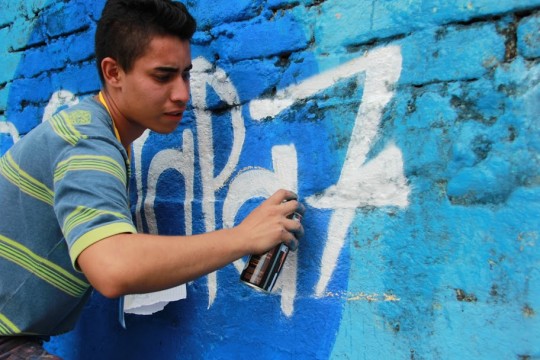The new peace process offers the opportunity for philanthropists to improve the lives of Colombia’s poorest communities
While the peace deal and disarmament of FARC is a remarkable milestone, the fact is that the peace accord does not guarantee peace. The end of the conflict has created favorable conditions for a collective process of peace building and reconciliation, but this requires creativity, long-term thinking, and all sectors of society to work together. Although the peace process continues to be led by the government, collective action among society will be paramount in order to reap the benefits of peace. Without violence, other sectors of society are now able to take part in creating a fairer and more equal Colombia. This is the moment for philanthropy to step forward.
The landscape in Colombia
Colombia is a deeply unequal country. As such, it needs philanthropic organizations and actors to bring their skills and expertise to help conflict-affected regions. These areas, often rural and almost always under-developed when compared with others regions of Colombia, are in dire need of social investment. In effect, ensuring that Colombia’s peace deal is a reality on the ground will require society to work and come together, and a willingness to innovate and rethink the way that different actors and sectors interact and cooperate with each other in order to create meaningful impact in Colombia’s former conflict areas. This kind of creative reconfiguration should be a priority for philanthropy. It has neither ‘bottom line’, nor electorate, so it has the latitude to think and act differently.
But first, it must rethink itself based on its ability and power to provide a voice for those regions and communities who are under-represented in Colombia. Philanthropic actors currently operating in Colombia must also encourage new actors to engage in conflict-affected areas through partnerships that strengthen the impact of projects taking place on the ground or replicating them in other areas of the country.
In an attempt to successfully engage the philanthropic sector in Colombia in the Sustainable Development Goals, particularly as they relate to the peace process, AFE Colombia and SDG Philanthropy Platform recently published a report – Peace and Sustainable Development in Colombia: The Role of Philanthropy in building a shared future. The report aims to serve as a catalyst for new thinking and dialogue between key stakeholders and to shed light on the challenges and opportunities stemming from Colombia’s historic peace accord. It also provides concrete recommendations and ways that local and international philanthropic organizations can support Colombia’s transition towards peace.
Ensuring a gender perspective
Ensuring a gender perspective was a key focus in Colombia’s peace accord. It states that women’s rights and needs must be addressed by Colombian society as a whole. Philanthropic organizations can focus on women’s rights and strengthen local women’s groups so that they can play a pivotal role in peace building efforts across Colombia.
Several philanthropic institutions in Colombia are following UN recommendations to ensure women play a key role in peace-building efforts and that their voices continue to be heard. In particular, they are providing women with special access to education and job skills training for future employment. For example, the WWB Foundation encourages and educates women to set up their own businesses. Philanthropic organizations such as Belcorp Foundation, and Mujeres de Exito Foundation offer training programmes aimed to empower women, and prevent violence. Other organizations are providing legal services to women and girls seeking justice for crimes committed against them.
Philanthropy is uniquely positioned to play an important role as Colombia faces a critical turning point. Their ability to take a long perspective and to take risks often elude governments and businesses due to their fiduciary duties and/or short-term execution cycles. Philanthropy can become a key player in the transition towards peace-building, and in creating the conditions needed for sustainable peace by acting as a catalyst for innovation and collective action towards peace.
The accord offers opportunities to improve the lives of Colombia’s poorest communities. Philanthropists must seize these opportunities while they can.
The SDG Philanthropy Platform is a global initiative that helps philanthropy engage in the global development agenda. For more on philanthropy and the SDGs, see here.
Merybell Reynoso is an international communications consultant for the SDG Philanthropy Platform.
Juan David Ferreira is a consultant for Asociación de Fundaciones Empresariales y Familiares-AFE Colombia.








Comments (0)